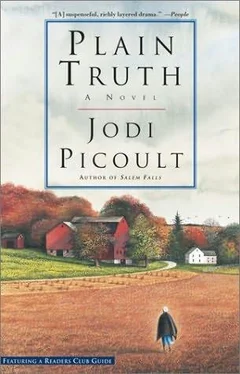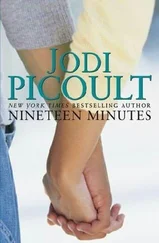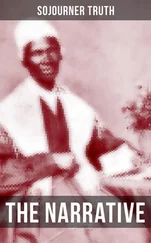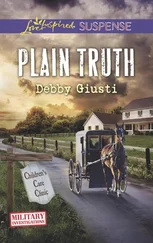Ellie listened as Riordan walked Katie through the birth, asking her to recount the events in the present tense. “It’s lying there,” Katie said softly, “right between my legs.”
“Is it a boy or a girl?”
“A boy. A tiny, tiny boy.” She hesitated. “It’s moving around.”
Ellie felt her face grow warm. She turned away, fanning herself with one hand.
“Is it crying?” Riordan asked.
“No. Not till I cut the cord.”
“How do you cut it?”
“My Dat keeps a pair of scissors hanging on a peg outside the calving pen. That’s what I use. And then there’s blood, all over the place, and I’m thinking that I won’t be able to clean this up, ever. I push down on the end of the cord, and tie it off . . . with twine, I think. Then it starts crying.”
“The baby?”
“Ja. It starts crying loud, real loud, and I try to hold him up against me to keep him quiet, but that doesn’t help. I rock it tight and give it my knuckle to suck on.”
Ellie leaned against the wall. She pictured this fragile infant, rooting around the bodice of Katie’s nightgown. She imagined the little face, the translucent eyelids, and suddenly there was a weight in her arms, heavy as a lost opportunity. How could anyone’s actions, in this case, be defended? “Excuse me,” she announced, bustling into the kitchen. “I need a glass of water. Anyone else?”
For her interruption, Riordan gave her a dirty look. Ellie concentrated on filling a glass without her hand shaking, on drinking just a little before she had to hear her client recount this baby’s death.
“What happens next, Katie?” Riordan asked.
Katie squinted, shook her head, then sighed. “I don’t know. I wish I did, I wish like you can’t imagine. But one minute I’m praying for the Lord to help me, and the next minute I’m waking up. The baby is gone.” Ellie bowed her head over the sink. “A miracle,” Katie added.
Riordan stared at her. “You’re kidding, right?”
“No.”
“How long were you passed out in the barn?”
“I don’t know. I guess about ten, fifteen minutes.”
The psychiatrist folded his hands in his lap. “Did you kill the baby during that time?”
“No!”
“You’re sure?” She nodded emphatically. “Then what did happen to him?”
No one had ever asked Katie before; as Ellie watched the girl struggle for an answer, she realized how shortsighted this had been. “I . . . don’t know.”
“You must have an idea. Since someone killed that baby, and it wasn’t you.”
“M-m-maybe it just died,” Katie stammered. “And someone hid it.”
Ellie silently groaned. And maybe that was Katie’s subconscious doing a voluntary confession. “Do you think that’s what happened?” Riordan asked.
“Someone could have come in and killed it.”
“Does that seem likely to you?”
“I-I’m not sure. It was sort of early . . .”
“Middle of the night, I’d figure,” Riordan interjected. “Who would have known you were there giving birth?” He watched her wrestle with the question. “Katie,” he said firmly, “what happened to the baby?”
Ellie watched the girl’s disintegration: the trembling lower lip, the welling eyes, the shaking spine, as Katie shook her head and repeatedly denied criminal responsibility. She waited for Riordan to do something to comfort Katie, but then realized that he’d already aligned his sympathies elsewhere. He’d been retained by the prosecution; it would be unethical for him to offer comfort when he’d been called in for the express purpose of helping to lock Katie away.
Ellie approached her client and knelt. “Do you think we could take a minute?”
She didn’t wait for Riordan’s response. Instead she slipped an arm around Katie’s shoulders, trying to ignore the way the girl had balled up her apron and now sat huddled over it, cradling it in her arms as if it were an infant.
Riordan batted his eyes and adopted an impassioned falsetto. “Katie Fisher wasn’t there at the time of the baby’s death. Her body, maybe, but not her mind. At the time that infant died, she was in a mental fortress made of her own guilt.” He lowered his voice to his own natural tones and grinned at the county attorney. “Or something along those lines.”
George laughed. “Does that psychoanalytic bullshit actually work at trials?”
Riordan took a mint from a jar on the desk. “Not if I have anything to say about it.”
“You’re sure that when Hathaway noticed up insanity, she was thinking of dissociation?”
“Trust me, it’s the designer defense tailored to neonaticide. Psychologically, the discrepancies between Katie’s story and the forensic evidence can be explained either by dissociation, or flat-out lying-and you can figure out which of those two options the defense is going to seize upon. But brief episodes of dissociation do not constitute insanity.”
Riordan shrugged, popping a mint into his mouth. “The other thing about dissociative states is that if you give Ms. Hathaway enough rope, she’ll hang herself. There’s no way for her expert to prove that the dissociation was caused by the mental stress of giving birth, rather than the mental stress of committing murder. It’s a chicken-and-egg thing.”
“I can go somewhere with this.” George grinned and leaned back in his chair.
“Straight to the state prison.”
George nodded. “Do we need to cover any of the psychological ramifications of being Amish?”
Riordan stood, buttoned his jacket. “Why?” he said. “Murder’s murder.”
As he kissed her, leaves rained down over them, spotting his back with the rich reds of the maples and the guinea gold of the oaks. Her shawl was spread over the crab grass like the wingspan of a great black hawk, providing a makeshift blanket. Katie moved her hands from Adam’s hair to his shoulders as he began to unfasten her dress. He gently speared each straight pin into the bark of the tree behind them, and she loved him for that-for being thoughtful enough to consider what this would be like for her, after.
The apron came off, and her dress fell open. Katie closed her eyes, embarrassed, but then felt Adam bend to her breast, drawing on her through the fine cotton of her underwear. She held his head there; she imagined that he was drinking from the bowl of her heart.
He had not said he loved her, but that did not matter. It was how he acted, how he treated her, that was a truer measure than any words he could say-deeds were the proof of affection for her people, not three little syllables that signified nothing. Adam would tell her when it was over; when it would not cheapen what was happening between them.
Then he shed his own clothes. Just by looking now, you could not say that one was Plain and one was not. That was the last conscious thought Katie had, and then Adam pressed his body full against hers, the heat of his skin taking away her speech, her fears.
He was heavy and full between her legs. With one hand, he lifted her knee, so that her body made a cradle for him. Then Adam looked down at her, his expression grave. “We can stop,” he whispered. “Right now, if you want.”
Katie swallowed. “Do you want to stop?”
“About as much as I’d like to be drawn and quartered.”
She lifted her hips, an invitation, and felt him losing himself in her, stretching her so that it made her eyes smart. She thought of all the tourists who stood beneath the crossroads sign about five miles east, the one that said INTERCOURSE, PA, and how they’d giggle and point up at it while someone snapped their picture. She thought of her flesh giving way to Adam’s, the sweetest yielding of all. And then Adam reached between them and touched her. “Come with me,” he whispered.
Читать дальше












